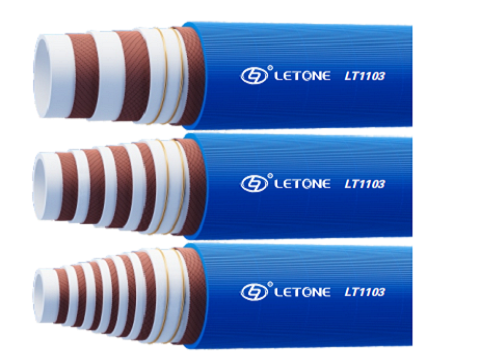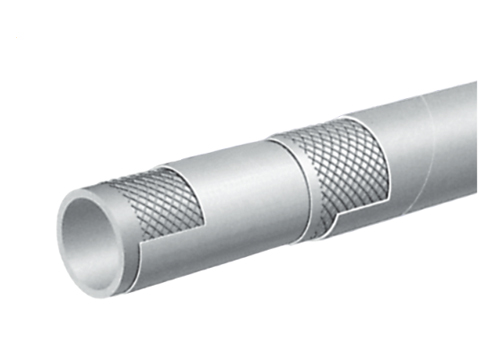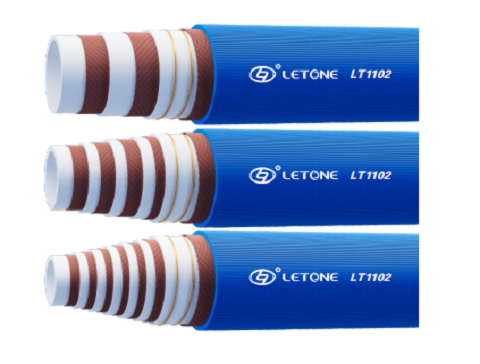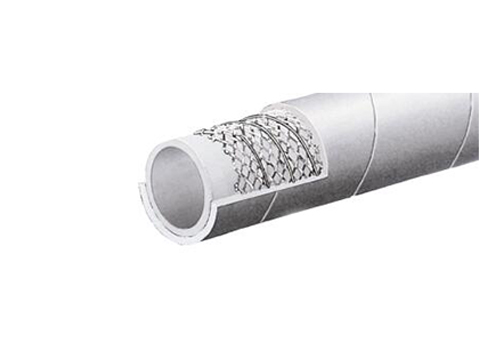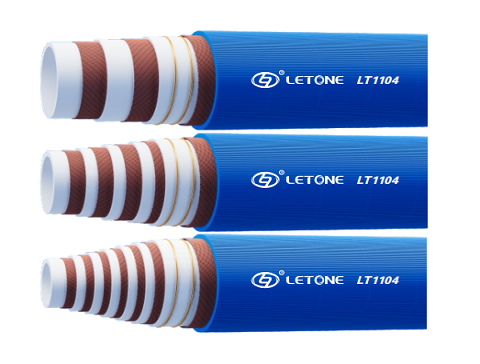The criteria for selecting chemical hoses mainly include the following aspects:
Material standard: Chemical hoses must be made of high-quality materials such as corrosion resistance, high temperature resistance, and high pressure resistance to meet the transportation requirements of various chemical media. Commonly used materials include rubber, polytetrafluoroethylene, PTFE, etc.
Structural standards: The structure of chemical hoses must comply with relevant standards, including pipe diameter, length, joint form, etc. These structural parameters must meet the usage requirements to ensure that the flow rate, pressure, and other parameters of fluid transportation meet the standards.
Dimensional accuracy: The dimensional accuracy of chemical hoses must comply with relevant standards to ensure the tightness and stability of hose connections. The dimensional accuracy requirements include regulations on inner diameter, outer diameter, length, etc. Accurate measurement and control are required during the manufacturing process.
 Air tightness test: Chemical hoses must undergo strict air tightness testing to check whether their sealing performance meets the requirements. The airtightness test is usually conducted by inflating or vacuuming to ensure that the hose does not leak during use.
Corrosion resistance test: Chemical hoses must pass the corrosion resistance test to verify their material's corrosion resistance performance. The testing methods include soaking in corrosive media, coating with anti-corrosion coatings, etc., to ensure that the hose can resist the erosion of various corrosive media during use.
High temperature and high pressure test: Chemical hoses must pass the high temperature and high pressure test to prove that they can work normally in high temperature and high pressure environments. Testing usually requires long-term pressure and temperature cycling under high temperature and pressure conditions to check whether the material and structure of the hose are stable and reliable.
Flexibility test: Chemical hoses must pass the flexibility test to verify that they are not easily damaged under conditions such as bending, twisting, and vibration. The testing methods include bending test, torsion test, and vibration test to ensure that the hose can maintain good flexibility and stability during use.
Safety certification: Chemical hoses must pass relevant safety certifications to prove that they meet the requirements of relevant standards and regulations. These certifications include international quality certification systems (ISO 9001), American Petroleum Institute (API) and other standard certifications, as well as safety certifications for specific countries and regions. Chemical hoses that have passed safety certification can obtain corresponding qualifications and reputation, proving the reliability of their quality and safety.
When selecting chemical hoses, it is necessary to consider the above standards comprehensively based on the specific usage environment and medium requirements. At the same time, it is also necessary to consider factors such as the price, service life, and maintenance cost of the hose, in order to choose the chemical hose that is most suitable for your own usage requirements.
Air tightness test: Chemical hoses must undergo strict air tightness testing to check whether their sealing performance meets the requirements. The airtightness test is usually conducted by inflating or vacuuming to ensure that the hose does not leak during use.
Corrosion resistance test: Chemical hoses must pass the corrosion resistance test to verify their material's corrosion resistance performance. The testing methods include soaking in corrosive media, coating with anti-corrosion coatings, etc., to ensure that the hose can resist the erosion of various corrosive media during use.
High temperature and high pressure test: Chemical hoses must pass the high temperature and high pressure test to prove that they can work normally in high temperature and high pressure environments. Testing usually requires long-term pressure and temperature cycling under high temperature and pressure conditions to check whether the material and structure of the hose are stable and reliable.
Flexibility test: Chemical hoses must pass the flexibility test to verify that they are not easily damaged under conditions such as bending, twisting, and vibration. The testing methods include bending test, torsion test, and vibration test to ensure that the hose can maintain good flexibility and stability during use.
Safety certification: Chemical hoses must pass relevant safety certifications to prove that they meet the requirements of relevant standards and regulations. These certifications include international quality certification systems (ISO 9001), American Petroleum Institute (API) and other standard certifications, as well as safety certifications for specific countries and regions. Chemical hoses that have passed safety certification can obtain corresponding qualifications and reputation, proving the reliability of their quality and safety.
When selecting chemical hoses, it is necessary to consider the above standards comprehensively based on the specific usage environment and medium requirements. At the same time, it is also necessary to consider factors such as the price, service life, and maintenance cost of the hose, in order to choose the chemical hose that is most suitable for your own usage requirements.

